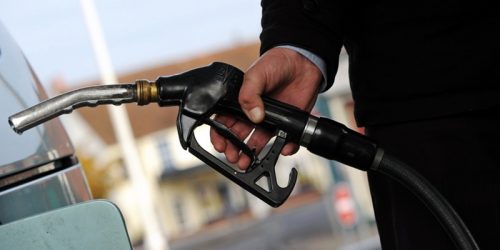The government on Friday increased the prices of all petroleum products by up to nearly Rs26 to share the impact of rising international prices with the consumers.
The price of petrol (motor spirit) has been raised by a whopping Rs25.58 to Rs100.10 per litre from the existing Rs74.52, an increase of 25.6 per cent, according to a Finance Division press release.
The price of high-speed diesel (HSD) has been hiked to Rs101.46 per litre from the current price of Rs80.15, a jump of Rs21.31.
The new price of kerosene oil (SKO) will be Rs59.06, a rise of Rs23.50 over the existing Rs35.56.
Meanwhile, the price of light diesel oil (LDO) has been pushed up by Rs17.84 to Rs55.98 from the current Rs38.14.
The decision to revise the prices of petroleum products upwards was taken “in view of the rising oil prices trend in the global market”, the brief statement issued by the Finance Division said.
The new prices are effective from June 26 (today).
The announcement of the fuel prices hike comes unexpectedly as the prices revised last month were to remain in effect until June 30.
The new prices are usually announced on the last day of a month and usually come into effect after 12am for the upcoming month. In contrast to this practice, the revised prices were announced today on the same day they went into effect, taking many consumers by surprise.
Last month, the prices of all petroleum products except high-speed diesel had been reduced to partially pass on the impact of massive international price reduction to the masses.
The government has already increased the general sales tax (GST) on all petroleum products to a standard rate of 17pc across the board to generate additional revenues. Until January last year, the government was charging 0.5pc GST on LDO, 2pc on kerosene, 8pc on petrol and 13pc on HSD.
Besides the 17pc GST, the government has almost quadrupled the rate of petroleum levy on HSD and petrol to Rs30 per litre — the maximum permissible limit — from Rs8 per litre in January last year.
Over the last many months, the government had been increasing petroleum levy rates to partially recoup a major revenue shortfall faced by the FBR. The levy remains in the federal kitty unlike GST that goes to the divisible pool taxes and thus about 57pc share is grabbed by the provinces.
Petrol and HSD are two major products that generate most of the revenue for the government because of their massive and yet growing consumption in the country.
Average petrol sales are touching 700,000 tonnes per month against the monthly consumption of around 600,000 tonnes of diesel. However, the sales of petrol had dropped in recent weeks due to the coronavirus lockdown. The diesel consumption had also dropped after the lockdown but has since picked up owing to wheat harvest. The sales of kerosene oil and LDO are generally less than 11,000 and 2000 tonnes per month.





